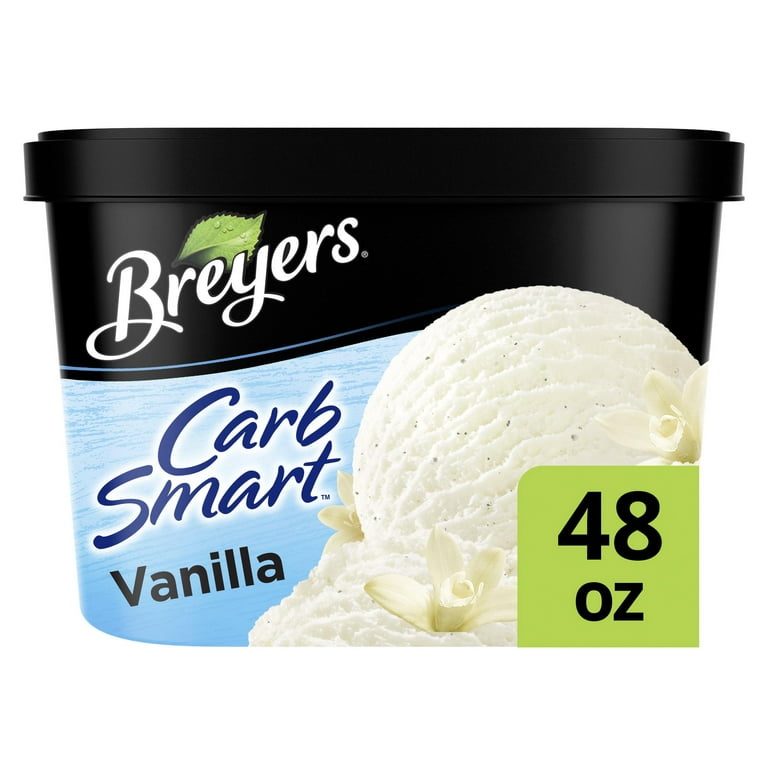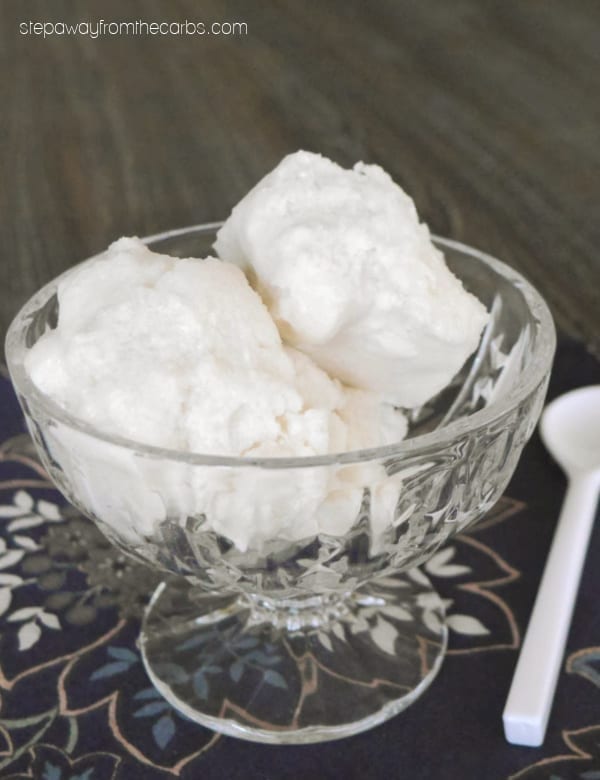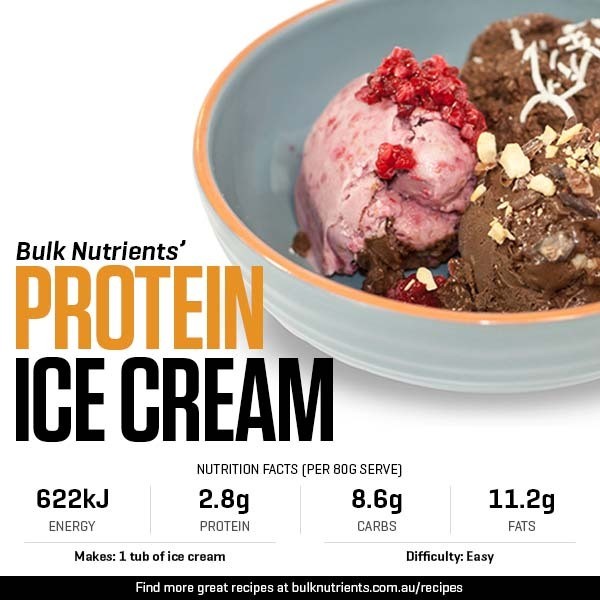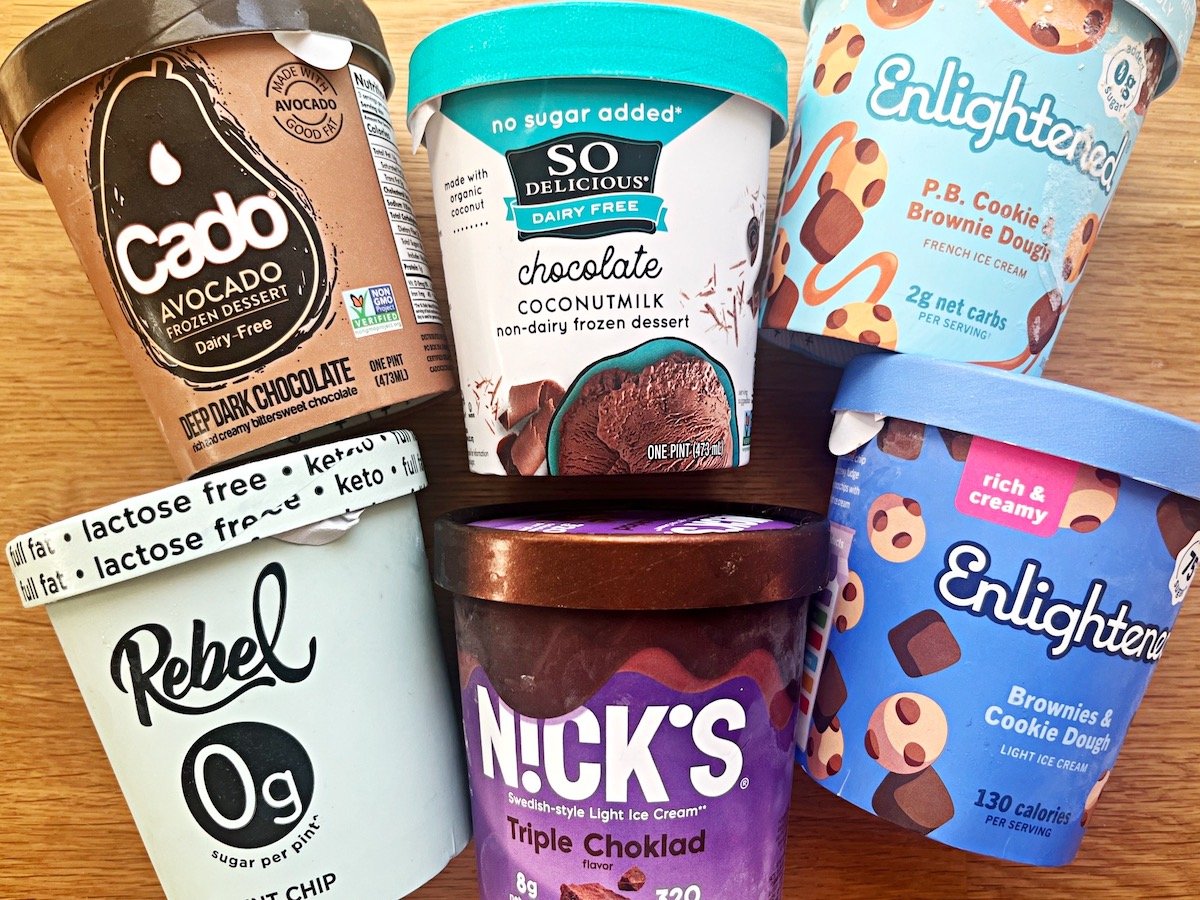Understanding Ice Cream Nutrition

Understanding Ice Cream Nutrition: Ice cream is a delicious treat enjoyed by many, but it’s important to understand its nutritional profile. Most ice cream varieties are high in calories and added sugars, making them a less than ideal choice for those seeking a nutritious diet. However, there are low-fat and no-sugar-added options available that can be a healthier choice. It’s important to read the nutrition labels and be aware of the carbohydrate content in ice cream, especially for those following a low-carb or keto diet. Making informed choices can help individuals enjoy ice cream while still maintaining a balanced and nutritious diet.
1 The Composition Of Ice Cream
Ice cream is typically composed of several key ingredients, including milk, cream, sugar, and flavorings. The milk and cream provide the creamy texture and richness, while the sugar is responsible for the sweet taste. Additionally, ice cream may contain stabilizers, such as emulsifiers or gums, to prevent ice crystal formation and maintain a smooth consistency. Flavorings, such as vanilla extract or fruit purees, are added to give ice cream its delicious taste. The specific combination and proportion of these ingredients can vary, resulting in different flavors and types of ice cream.
2 Key Nutritional Values To Consider
When considering the nutritional value of ice cream, there are two key factors to keep in mind: calories and fat content. Ice cream is known for being high in calories and fat, which can contribute to weight gain if consumed in excess. It is important to be mindful of portion sizes and choose lower-fat options when possible. Additionally, some ice creams may contain added sugars, which can impact blood sugar levels. Reading nutrition labels and understanding the calorie and fat content can help individuals make more informed choices when enjoying this frozen treat.
Carbohydrates In Ice Cream

Carbohydrates are an essential macronutrient found in ice cream. A typical serving of ice cream can contain a significant amount of carbohydrates, mainly in the form of sugars. These sugars provide energy but can also contribute to weight gain if consumed in excess. Additionally, some ice cream varieties may contain added sugars, which can impact blood sugar levels. Individuals following a low-carb or keto diet need to be mindful of their ice cream consumption, as it can quickly add up in terms of carbohydrate intake. It’s important to read nutrition labels and choose lower-carb options when possible.
1 What Are Carbohydrates?
Carbohydrates are one of the three main macronutrients found in food, alongside protein and fat. They are a source of energy for the body and are essential for its proper functioning. Carbohydrates are made up of sugar molecules, which can be simple, such as glucose and fructose, or complex, such as starch and fiber. They are found in various foods, including fruits, vegetables, grains, and dairy products. Carbohydrates provide fuel for the brain, muscles, and organs, making them a crucial part of a balanced diet.
2 Types Of Carbohydrates Found In Ice Cream
Ice cream contains two main types of carbohydrates: sugars and fiber. Sugars, such as lactose and added sugars, contribute to the sweet taste of ice cream. Lactose is a naturally occurring sugar found in milk, which is one of the main ingredients in ice cream. Added sugars, such as sucrose or corn syrup, are often used to enhance flavor. On the other hand, fiber is a type of carbohydrate that is not fully digested by the body. While ice cream typically contains very little fiber, some brands may include added fiber to boost their nutritional content.
Evaluating Ice Cream Carbohydrate Content

Evaluating the carbohydrate content of ice cream is important for those monitoring their carbohydrate intake. To determine the carbohydrate content of a specific ice cream, it is recommended to check the nutrition label or use online resources that provide information on various ice cream brands. Pay attention to serving sizes and total carbohydrate grams per serving. Additionally, be cautious of hidden sugars, such as added sweeteners or syrups. Comparing different ice cream varieties can help identify options with lower carbohydrate content. It is always advisable to consult with a healthcare professional for personalized dietary guidance and to ensure that ice cream fits within an individual’s overall carbohydrate goals.
1 Carbohydrate Content In Different Ice Cream Varieties
When it comes to ice cream, the carbohydrate content can vary depending on the variety. Traditional ice cream flavors like vanilla and chocolate tend to have higher carbohydrate content due to the sugar and other sweeteners used in their preparation. On the other hand, sugar-free or low-carb ice cream options are available for individuals looking to reduce their carbohydrate intake. These alternatives often use sugar substitutes or natural sweeteners like stevia or monk fruit. It is important to check the nutrition labels or consult online resources to determine the carbohydrate content of different ice cream brands and flavors.
2 Factors Affecting Carbohydrate Levels In Ice Cream
The carbohydrate levels in ice cream can be influenced by various factors. These factors include:
- Ingredients: The choice of ingredients used in the ice cream recipe can affect its carbohydrate content. Ice creams made with higher amounts of sugar or other sweeteners will have higher carbohydrate levels compared to those made with low-calorie sweeteners or natural sweeteners.
- Flavors and Additives: Different flavors of ice cream may contain added ingredients such as fruits, nuts, or chocolate chips, which can contribute to the overall carbohydrate content. Moreover, some ice creams may also contain additional additives like syrups or toppings, which can increase the carbohydrate levels.
It is essential to check the nutrition labels or consult online resources to determine the carbohydrate content of specific ice cream products.
Impact Of Carbohydrates On Health

Carbohydrates play a crucial role in our overall health and well-being. They are the primary source of energy for our bodies, providing fuel for daily activities and brain function. However, consuming excessive amounts of carbohydrates, especially refined and simple sugars, can have negative effects on health. High carbohydrate diets have been associated with weight gain, increased risk of diabetes and heart disease, and can contribute to elevated blood sugar levels. It is important to find a balance in carbohydrate intake, choosing complex carbohydrates from whole grains, fruits, and vegetables, while limiting processed and sugary foods. Regular monitoring of carbohydrate intake can help maintain a healthy lifestyle.
1 Role Of Carbohydrates In A Balanced Diet
Carbohydrates play a crucial role in a balanced diet. They are the primary source of energy for our bodies, providing fuel for daily activities and brain function. In addition to providing energy, carbohydrates also contribute to the structure and function of organs, muscles, and tissues. Incorporating the right amount and type of carbohydrates into a balanced diet is essential for overall health and well-being. It is recommended to choose complex carbohydrates from whole grains, fruits, and vegetables, as they provide additional nutrients and fiber. Monitoring carbohydrate intake can help maintain a healthy diet and support optimal functioning of the body.
2 Considerations For Individuals With Special Dietary Needs
Individuals with special dietary needs, such as those with diabetes or lactose intolerance, need to be mindful of their ice cream choices. Here are two important considerations for them:
- Sugar-Free or Low-Sugar Options: For individuals with diabetes or those watching their sugar intake, sugar-free or low-sugar ice cream varieties are available. These options are sweetened with artificial sweeteners or natural sugar substitutes, making them suitable for individuals managing their blood sugar levels.
- Non-Dairy Alternatives: Individuals with lactose intolerance or milk allergies can opt for non-dairy ice cream alternatives. These options are typically made from plant-based milks like almond, coconut, or soy, providing a suitable alternative for those with dairy restrictions.
It’s important for individuals with special dietary needs to carefully read labels and choose ice cream options that align with their specific requirements.
Alternative Options For Low-carb Ice Cream

For individuals looking for low-carb options, there are alternative ice cream choices available. These options are specifically designed to be lower in carbohydrates, making them suitable for those following a low-carb or keto-friendly diet. Some popular alternatives include:
- Sugar-free or Low-Carb Ice Cream: These ice creams are usually sweetened with artificial sweeteners or sugar substitutes that have minimal impact on blood sugar levels.
- Homemade Ice Cream: Making your own ice cream at home allows you to control the ingredients and customize the recipe to be low in carbs. You can use alternative sweeteners and low-carb ingredients to make a delicious treat.
- Frozen Yogurt: Frozen yogurt is typically lower in carbs compared to traditional ice cream. Look for options that are low in added sugars and high in protein for a healthier alternative.
When choosing low-carb ice cream options, it is important to read the nutrition labels and consider the net carb content. Net carbs are calculated by subtracting the fiber and sugar alcohols from the total carbohydrates. This provides a more accurate measure of the carbs that affect blood sugar levels.
1 Exploring Low-carb And Keto-friendly Ice Creams
Low-carb and keto-friendly ice creams have gained popularity among individuals following low-carb or ketogenic diets. These ice creams are specifically designed to be lower in carbohydrates and sugar substitutes are used in place of traditional sweeteners. When choosing a low-carb or keto-friendly ice cream, it is important to consider the total carbohydrate content, typically ranging from 10 to 20 grams per serving. Additionally, individuals should also consider the type of fat used in the ice cream, opting for healthier fats like coconut oil or avocado oil. These alternatives provide a great option for enjoying ice cream while sticking to a low-carb or keto lifestyle.
2 Tips For Choosing Healthier Ice Cream Options
When choosing healthier ice cream options, consider these two tips:
- Read the Nutrition Label: Look for ice creams that are lower in sugar and carbohydrates. Avoid ice creams with high fructose corn syrup or artificial sweeteners. Opt for options made with natural sweeteners like stevia or erythritol. Additionally, check the ingredient list for any added preservatives or artificial additives.
- Stick to Small Portions: While it may be tempting to indulge in a large serving of ice cream, practicing portion control is key. Stick to the recommended serving size, usually 1/2 cup, to ensure you’re not consuming excessive calories and carbohydrates. Consider using smaller bowls or dishes to help control portion sizes.
By following these tips, you can enjoy a healthier ice cream choice while still satisfying your sweet tooth.
Conclusion

In conclusion, ice cream is a delicious treat that can be enjoyed in moderation. While it does contain carbohydrates, it is important to consider the overall nutritional profile of the ice cream you choose. Opting for options that are lower in added sugars and carbohydrates can help make it a healthier choice. Additionally, practicing portion control and being mindful of your overall dietary intake are important factors in maintaining a balanced diet. Ultimately, enjoying ice cream in moderation can be a part of a healthy lifestyle.
1 Final Thoughts On Ice Cream And Carbohydrate Content
In conclusion, ice cream is indeed a treat that contains carbohydrates. The amount of carbs present in ice cream varies depending on the brand, flavor, and type. It is important to be mindful of your overall dietary intake and to choose ice cream options that are lower in added sugars and carbohydrates. Those who follow a low-carb or keto diet may opt for alternative options that are specifically designed to be low in carbs. Ultimately, enjoying ice cream in moderation can still be a part of a balanced and healthy diet.
2 Balancing Enjoyment And Nutrition
Balancing enjoyment and nutrition is key when it comes to indulging in ice cream. While ice cream can be a delightful treat, it’s important to be mindful of its nutritional content. By practicing portion control and moderation, individuals can still enjoy their favorite flavors without compromising their overall health. Additionally, paying attention to the ingredients and choosing ice cream options made from wholesome ingredients can contribute to a more nutritious choice. By finding a balance between satisfaction and nutritional value, individuals can fully enjoy their ice cream experience while maintaining a healthy lifestyle.
Frequently Asked Questions: Does Ice Cream Have Carbs?
Q: Does ice cream contain carbs?
A: Yes, ice cream contains carbohydrates. Carbohydrates are a macronutrient found in various foods and are present in different forms in ice cream.
Q: How do carbs in ice cream affect our diet?
A: Carbohydrates in ice cream can have an impact on an individual’s diet, especially if they are monitoring their carbohydrate intake. Ice cream can contribute to the total daily carb count, so it’s important to be mindful of portion sizes and choose lower-carb options if needed.
Q: Are all ice creams high in carbs?
A: The carbohydrate content in ice cream varies depending on the brand and flavor. Some ice creams can be higher in carbohydrates due to added sugars and sweeteners, while others may offer lower-carb alternatives, such as sugar-free or reduced-sugar options.
Q: What are some low-carb ice cream options available?
A: There are several low-carb ice cream options available in the market today. These alternatives often use sugar substitutes like stevia or erythritol, which have fewer carbohydrates than regular sugar. Additionally, some brands offer higher-fat, lower-carb options like keto ice creams.
Q: Can people on low-carb or ketogenic diets consume ice cream?
A: People on low-carb or ketogenic diets can enjoy ice cream that is specifically designed for their dietary needs. These products are typically labeled as “keto-friendly” and have minimal carb content, while still aiming to provide a creamy and enjoyable ice cream experience.
Q: How can I determine the carb content in a specific ice cream?
A: To determine the carbohydrate content of a specific ice cream, you can refer to the nutrition label on the packaging. The label will provide information about the total carbohydrates per serving size, including any added sugars.
Q: Should individuals with specific dietary requirements avoid ice cream altogether?
A: It’s not necessary for individuals with specific dietary requirements to completely avoid ice cream. However, it is advisable to make informed choices by checking the nutritional information, considering portion sizes, and opting for lower-carb alternatives or moderation when necessary.
Q: Are there any healthy ice cream options available with lower carbs?
A: Yes, there are healthier ice cream options available that are lower in carbohydrates. These can include ice creams made with natural sweeteners like stevia or monk fruit, plant-based ice creams, or homemade versions using healthier ingredients like fresh fruit and Greek yogurt.
Q: Can consuming too much ice cream affect blood sugar levels?
A: Yes, consuming large amounts of ice cream, especially those high in carbohydrates and added sugars, can cause a spike in blood sugar levels. It is important for people with diabetes or those monitoring their blood sugar to be mindful of their ice cream consumption.
Q: Are there any alternatives to ice cream with lower carbs?
A: Yes, there are various alternatives to traditional ice cream that are lower in carbohydrates. Some options include frozen yogurt, sorbet, or making your own frozen treats using fruit-based recipes or low-carb ingredients like coconut milk or almond milk.
Remember, moderation is key when including ice cream or any sweet treat in your diet. It’s always a good idea to consult with a healthcare professional or a registered dietitian if you have specific dietary concerns or are following a specialized diet plan.

Soo Good Snack Bar is an upscale snack shop located at 1309 Hermosa Ave. in Hermosa Beach, CA. This family-owned business is the newest addition to the community of Hermosa, and our goal is to create a fun and inviting place where families can enjoy delicious snack foods that fit the beach lifestyle. Check us out today and help yourself to happiness.
